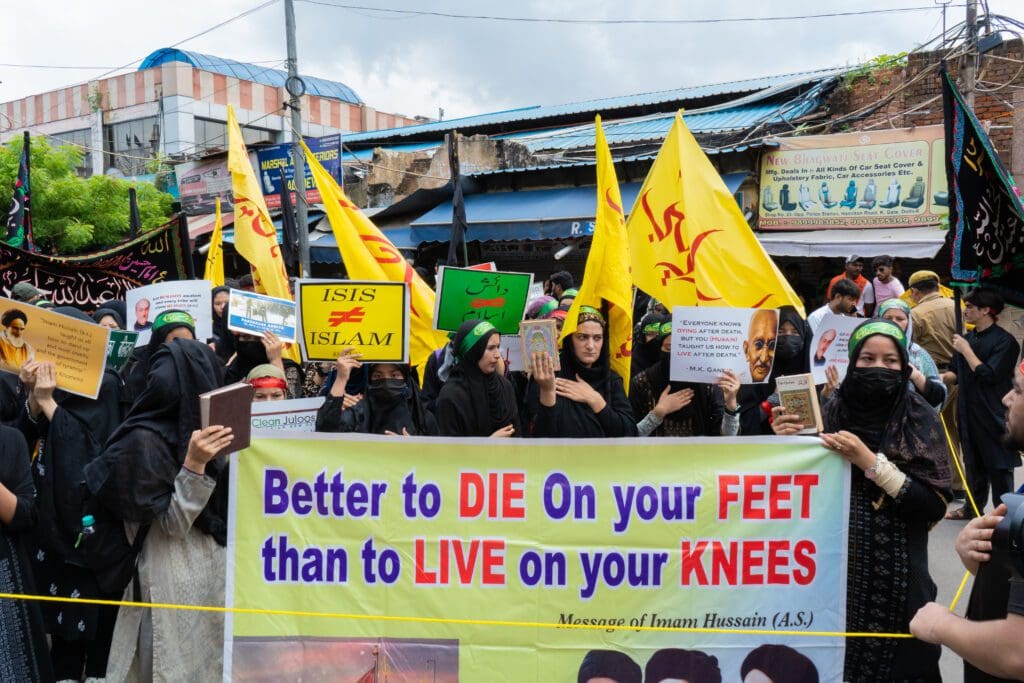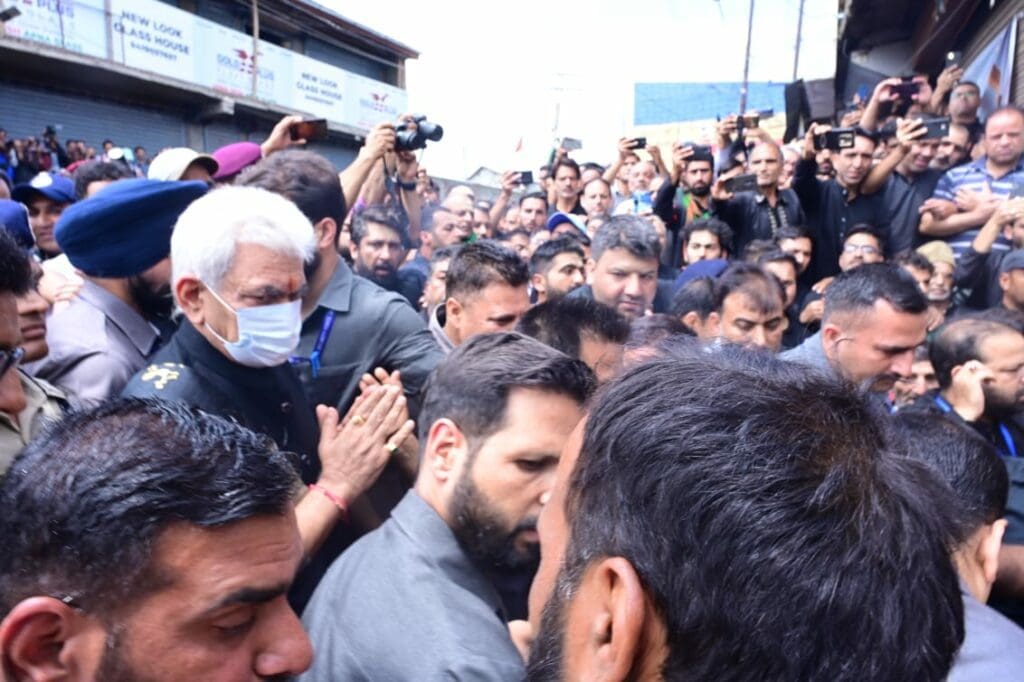
The Lt Governor of Jammu & Kashmir visited the 10th Muharram procession held at Srinagar, as it was about to begin its journey. This was after the 8th Muharram procession was allowed in the city after almost three decades. The occasion was termed historic, as Muslims in Muslim-majority Kashmir were for more than 30 years not allowed to follow their religious commitments.
This was almost the first time, at least in my memory that the governor of the (former) state was attending the procession. Accompanied by his heavy security and officials Lt Governor walked towards the procession, as people were mourning the martyrdom of Imam Hussain recalling his fight against an unjust and tyrant ruler.
The occasion was extremely uncomfortable and uneasy for me as a Muslim and a Kashmiri. And I know many others felt this feeling. To understand this discomfort, I think it is important for people to understand the religious context of Muharram and the context of Kashmir with its politics and history.
While most people are already aware of both these contexts, I would want to bring attention to some specific aspects of both.
The importance, prominence and significance of Muharram need not be mentioned. No other post-Prophet event has had so much impact on Muslims and Islam. The tragedy of Karbala became a litmus test for right and wrong, especially in the context of a regime and its legitimacy.
Without going into much detail, Imam Hussain’s opposition to that time’s regime was fundamentally based on the nature of the government of his time. The way then ruler, Yazid came to power, the nature of his rule and the legitimacy of his rule, all of these were reasons for Imam Hussain’s opposition and subsequent martyrdom.
Unlike previous rulers who followed Prophet, Muawiya (Yazid’s father) and Yazid came to power through force, not consensus among people. While Muawiya’s rule was somewhat reluctantly accepted due to his agreement with Imam Hussain’s brother Hassan. His subsequent decision to declare his son as his successor was the red line for Imam Hussain, who was the most prominent figure of the time.


For Imam Hussain, Yazid and his rule represented ideas and values that were contradictory to that of Islam and were infringing on people’s rights. Though almost alone in the larger scheme of things, Imam Hussain found it extremely necessary to resist and oppose the dictatorial regime, which was contrary to the values he grew up with. It was necessary to show a fight, to differentiate right from wrong despite victory or defeat. He made sure to call out the regime, labelling it illegitimate and demarcating right and wrong in politics for eternity.
It is this show of fight irrespective of any care for results that has differentiated for us the good and legitimate rulers from tyrants, illegitimate ones. For us, a ruler and his government have to pass the litmus test of Imam Hussain and the values that he got from his grandfather. The fact that the dynasty of the Umayyads is considered a monarchy and not a caliphate is due to Karbala. No ruler after Imam Hassan is considered a Caliph (except Umar II) because of Karbala. Despite what may appear a defeat in battle, Karbala is our reference point for right and wrong.
The historic and political context of Kashmir is a relatively more recent one, and those conscious of its history and politics are aware of its current political environment. Its history and events that has led it to where it is today. Mentioning all of it is not possible, and is not needed here. However just to contextualize my feeling, I would want to mention a few aspects.
The person currently at the helm of affairs of the region is one appointed by the Indian government without ANY say of the people. The person is not bound by any constraints and is almost free to decide and implement whatever he or his appointees want. I would refrain from mentioning anything about the state of freedom of expression in the region. The wishes and aspirations of people living in the region seem not to matter and there appears no platform for them to be known.
This all is happening in the background of 75 years of people of this region trying to find their voice in the political ecosystem. For these years the decisions about the region and its people have been made by anyone except the people. We saw the United Nations passing resolutions. We saw two countries fighting wars, signing agreements, and having discussions about the future of the region. In all this, the missing part was the say of the people living in this region. The decisions are being made in New Delhi and Islamabad, but never in Srinagar or Jammu.
For all these years people have been raising their voices for having the right to decide their fate, something which is considered basic in 21st-century politics.
So while we struggle to have a say in our own decisions, decisions are being made from the capital city. Their appointed ruler decides our fate, and we ought not to challenge it. Even the arrangement by which he dictates such policies was put in unilaterally.
In such a context it should not be difficult for one to understand the uneasiness and uncomfortableness one might feel. The least one can do is to take solace in the patience of Imam Hussain.
Hamaad Habibullah is a freelance journalist based in Delhi. His work has been published in TRT World, Fair Planet, The New Arab, Index on Censorship, and Religion News Service, among others.



